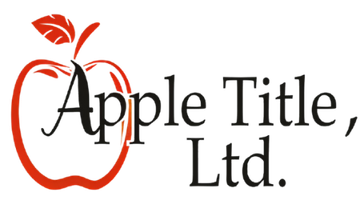Your Expert Partners in Closing Transactions
Serving Attorneys, Lenders, Real Estate Professionals, Buyers, and Sellers
Over Thirty Years of Trusted Title Services
With over 30 years of experience, our qualified staff will handle your transaction with the care and experience required. When necessary, an in-house attorney is available to ensure a smooth transaction. Our goal at Apple Title, LTD is to provide you with superior service tailored to your individual needs by removing the worry and stress out of your closing experience. Get started with us today!
Fully Licensed Title Company
Apple Title, LTD. is a Florida company and has been in existence since 2000. Our office is ideally suited for total customer service and privacy and is located in Tavares, Florida. We serve Lake County and all other counties located in the state of Florida. Reach out to us now to initiate your journey with our title company!
Comprehensive Title and Escrow Services for Every Need
Apple Title, LTD offers title insurance issued for all types of real estate transactions, including:
Expert Real Estate Attorney Helping You Navigate All Legal Complexities
Navigate the complexities of real estate law with confidence, backed by our expert real estate attorney. Equipped with thorough legal knowledge and a commitment to excellence, our attorney ensures smooth, legally sound transactions tailored to your specific needs. From contract reviews to title issues, you can rely on our legal expertise for a worry-free closing experience. Let us take care of the legalities for you.
Maximize Your Success with Our Tailored Solutions
Choose us for your title and real estate lawyer needs and enjoy benefits such as:
- Prompt turnaround time
- Closings scheduled to the convenience of the client
- Complete title and escrow services
- Real estate attorney working on-site to ensure smooth transactions
What is Title Insurance?
Title insurance is actually a process, with the insurance policy being the end product.
This process starts with a comprehensive search of public records to determine if any liens or other encumbrances are attached to the title. During the search, detailed information from potentially hundreds of sources is gathered and reviewed, including tax records, federal, state, and local records, court judgments, deeds, and an evaluation of whether the property characteristics are accurately reflected by the information on the title. Not surprisingly, one in four title searches uncovers some problem that must be rectified prior to the close.
What Kind of Problems Can Occur?
There are four primary categories that can cloud title and result in significant risk for a prospective home buyer. The title search meticulously seeks out and evaluates known indications of these issues; however, even the most comprehensive search may not uncover every hidden area of title risk.
Liens
Liens can be placed against a title by any party with an unpaid financial obligation against the property owner. The nature of claims can be everything from unpaid child support or alimony to unpaid traffic tickets, taxes, or bills from contractors like electricians or plumbers.
Reach out to us today and let us get started on your liens, claims, or any other needs!
Errors
Errors may have occurred during the course of previous ownership changes that could have included recording errors, typographical errors, incorrect legal descriptions, incorrect indexing of land records, or title search errors resulting from undisclosed issues like unsatisfied claims not shown in the public record.
Claims
Claims against a property may come from missing heirs or heirs born after the execution of a will, the dower or courtesy rights of spouses, or even from government or corporate entitles. They can also arise when the mental competence of a grantor is called into question; when wills are not properly probated or are misinterpreted; when a title was transferred by a minor; or when a grantor did so while under undue influence.
Real Estate Lawyer Safeguarding Your Investments
In the realm of real estate, safeguarding your investment is crucial. Our experienced real estate lawyer is here to ensure that your transactions are protected from potential pitfalls. With personalized attention and a deep understanding of real estate law, we provide the legal guidance necessary to secure your transactions. Trust us to shield your investments with professionalism and care.
Read Five-Star Testimonials From Our Clients
Frequently Asked Questions
If you have any questions about us, contact us today.
Contact Our Title Company
Fill out the form below, and we'll reach out shortly!







